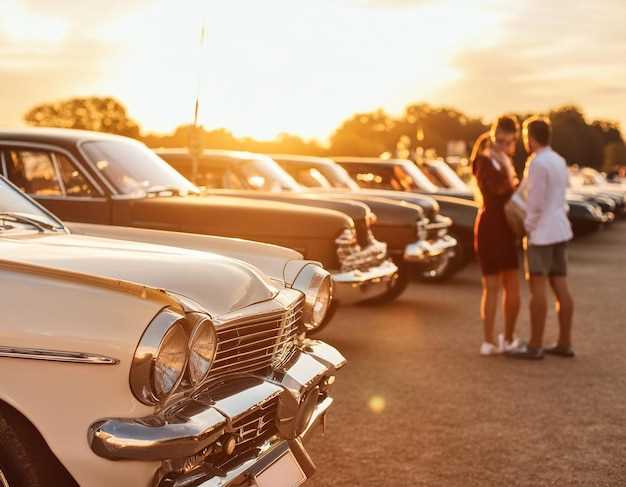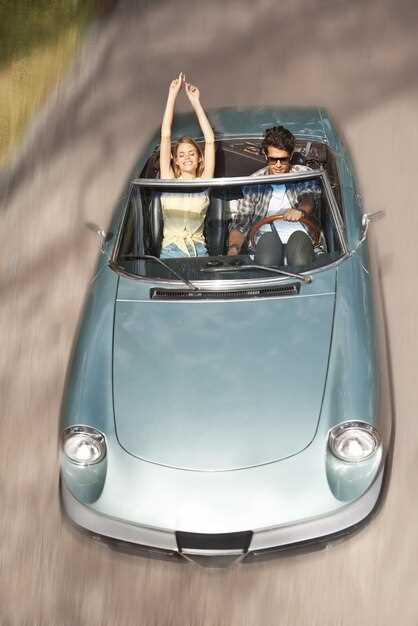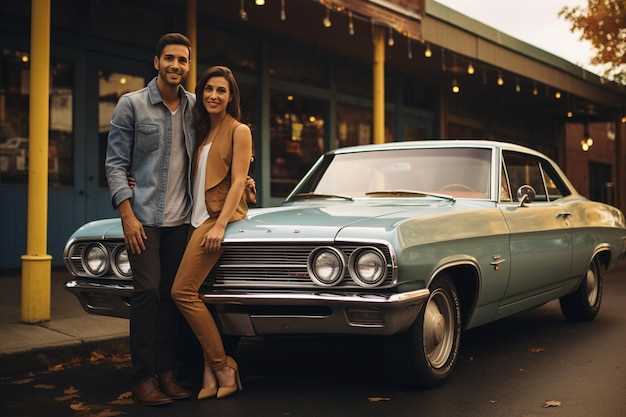
Classic cars are not merely vehicles; they represent a significant part of our cultural legacy, igniting passion and nostalgia among enthusiasts and casual admirers alike. These timeless machines, with their unique designs and engineering marvels, serve as a bridge that connects individuals across various demographics. The allure of classic cars fosters camaraderie, as people come together to share their stories, experiences, and love for these magnificent relics of a bygone era.
The presence of classic cars in local communities extends beyond individual ownership; they participate in car shows, parades, and meet-ups, creating vibrant social gatherings. Car enthusiasts actively engage in promoting automotive history and craftsmanship, enriching the community through shared knowledge and appreciation. In this way, classic cars become a catalyst for building strong relationships, as individuals bond over their mutual interests and experiences tied to these iconic automobiles.
Furthermore, classic cars often evoke fond memories of family road trips, first cars, and treasured moments in time. These memories resonate deeply within communities, enhancing the emotional connection people feel towards these vehicles. The act of restoring or preserving a classic car can also serve as a means for individuals to connect with their heritage, providing a sense of purpose and collective identity. In this article, we will explore how classic cars not only symbolize a passion for the past but also play a crucial role in forging lasting connections among people, communities, and generations.
How Classic Car Shows Foster Local Relationships
Classic car shows serve as vital community events where enthusiasts gather to share their passion for vintage vehicles. These gatherings create a unique environment that fosters relationships among local residents. The shared appreciation for classic cars transcends generations, allowing both young and old to connect over stories and experiences related to their favorite models.
At these shows, participants often engage in discussions about restoration techniques, specifications, and personal anecdotes tied to their classic cars. This exchange of information not only builds camaraderie but also strengthens community ties, as individuals bond over mutual interests. Local car owners are typically eager to share their knowledge, which encourages newcomers to join in and ask questions, fostering a warm and inclusive atmosphere.
Furthermore, classic car shows often feature activities such as contests, games, and food stalls, making them family-friendly events. These elements invite broader participation from the community, allowing families to spend quality time together while appreciating automotive history. As attendees share their love for classic cars, relationships form organically, resulting in a network of friendships that extends beyond the car show itself.
Moreover, classic car shows can boost local economies by attracting visitors from neighboring areas. These influxes benefit local businesses such as restaurants, shops, and hotels, fostering a sense of local pride and community spirit. Organizing or volunteering for these events can also unite locals, creating opportunities for collaboration and teamwork, which are essential for community development.
In essence, classic car shows are more than mere exhibitions; they act as catalysts for forming bonds and strengthening relationships within communities. The enthusiasm for classic vehicles ignites conversations and collaborations that enhance social connections, ultimately promoting a sense of belonging among participants.
The Role of Online Forums in Uniting Classic Car Enthusiasts

Online forums play a vital role in bringing together classic car enthusiasts from around the world. These digital platforms serve as virtual meeting places where individuals who share a passion for classic automobiles can connect, exchange ideas, and foster a sense of community. As the classic car culture thrives, these forums become essential for both newcomers and seasoned collectors alike.
One significant advantage of online forums is the accessibility they provide. Enthusiasts can easily join discussions, seek advice, or share their projects regardless of their location. This aspect allows individuals to bypass geographical barriers, thus uniting a diverse range of voices within the classic car community. Members can engage in conversations, whether they are restoring a vintage vehicle or discussing the historical significance of a particular model.
Moreover, online forums are a treasure trove of knowledge. Experienced car restorers and collectors often share tips, tricks, and comprehensive guides on maintenance or restoration processes. This collaborative spirit not only helps enthusiasts improve their skills but also strengthens bonds among members. By sharing their successes and challenges, individuals develop a sense of camaraderie that enhances the overall classic car experience.
In addition to knowledge sharing, online forums often host events, meet-ups, and virtual car shows. These activities further connect members of the classic car community, allowing them to share their passion in person. By fostering relationships through online interactions, forums facilitate a more enriching classic car culture, where enthusiasts can showcase their vehicles and celebrate their shared interests.
Ultimately, online forums serve as a cornerstone for the classic car community, uniting individuals through a shared love for vintage automobiles. They create an environment where enthusiasts can learn, collaborate, and build lifelong friendships, ensuring that the classic car culture continues to thrive and evolve.
Building Community Through Classic Car Restoration Projects

Classic car restoration projects serve as a vibrant avenue for community engagement, bringing together enthusiasts from diverse backgrounds who share a common passion. These collaborative efforts not only foster friendships but also create lasting bonds between individuals who dedicate their time and resources to reviving vintage automobiles.
As participants work side by side, they exchange knowledge and techniques, learning the intricacies of classic car mechanics and craftsmanship. Restoration projects often culminate in a sense of accomplishment, as teams breathe new life into vehicles that hold significant historical value. This process emphasizes teamwork and shared goals, which can enhance relationships and encourage mutual support.
Furthermore, classic car shows and meets often arise from these restoration efforts, providing a platform for owners to showcase their hard work. These events not only celebrate the beauty of classic cars but also strengthen community ties. Attendees have the opportunity to bond over their shared interests, discuss restoration challenges, and inspire one another with ideas and techniques.
In addition, local businesses frequently benefit from classic car restoration projects. As enthusiasts seek parts and services, they support their community’s economy. This relationship creates a cycle of goodwill, as business owners often become involved in the projects themselves, whether through sponsorship or active participation.
Ultimately, classic car restoration projects do more than just rehabilitate vehicles; they forge connections among individuals and businesses, cultivate skills, and promote a sense of belonging within the community. These shared experiences contribute to a lasting legacy that honors both the cars and the people who love them.




